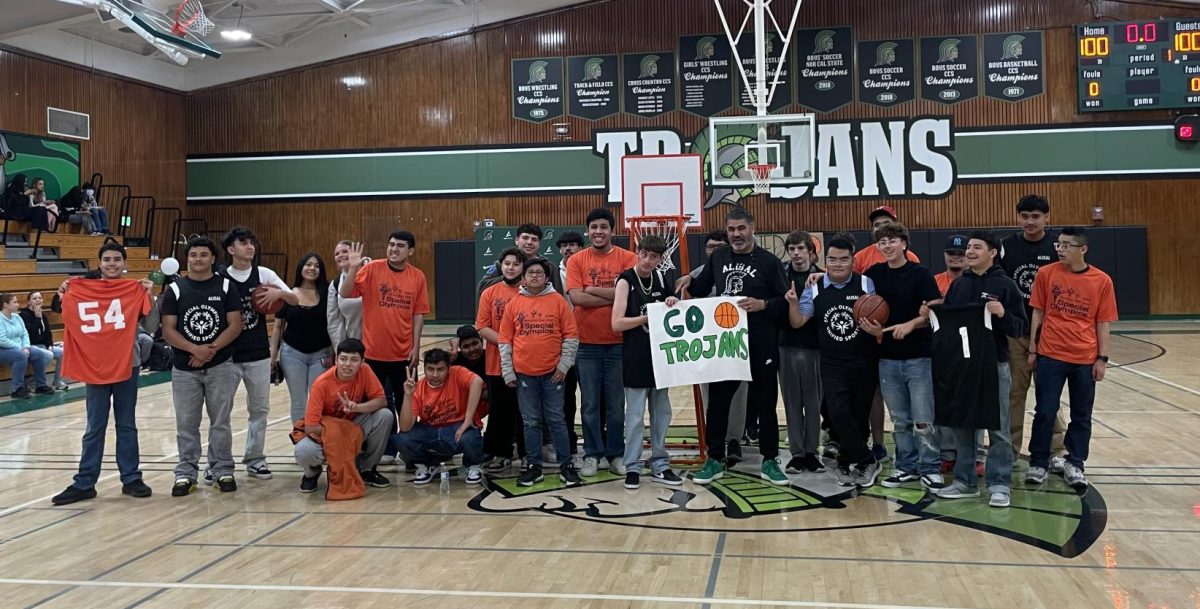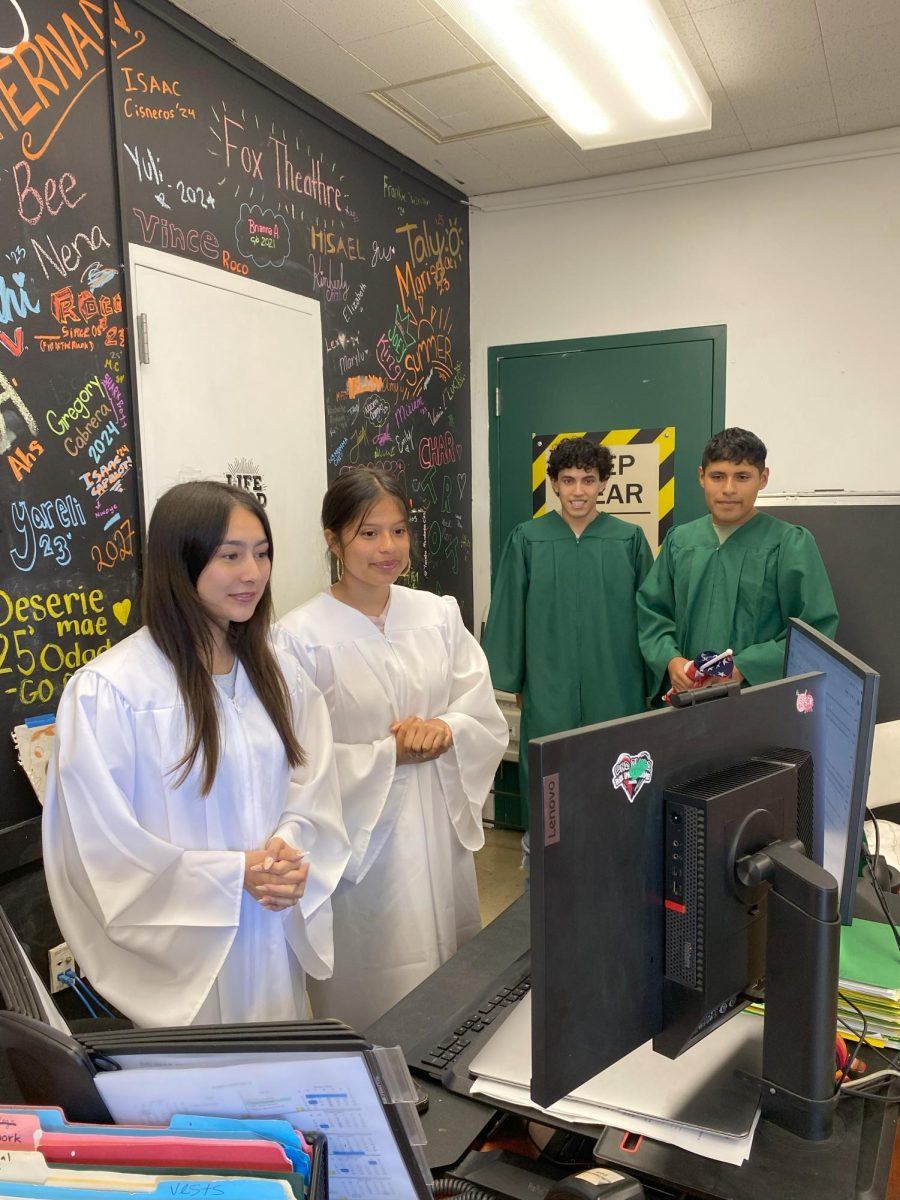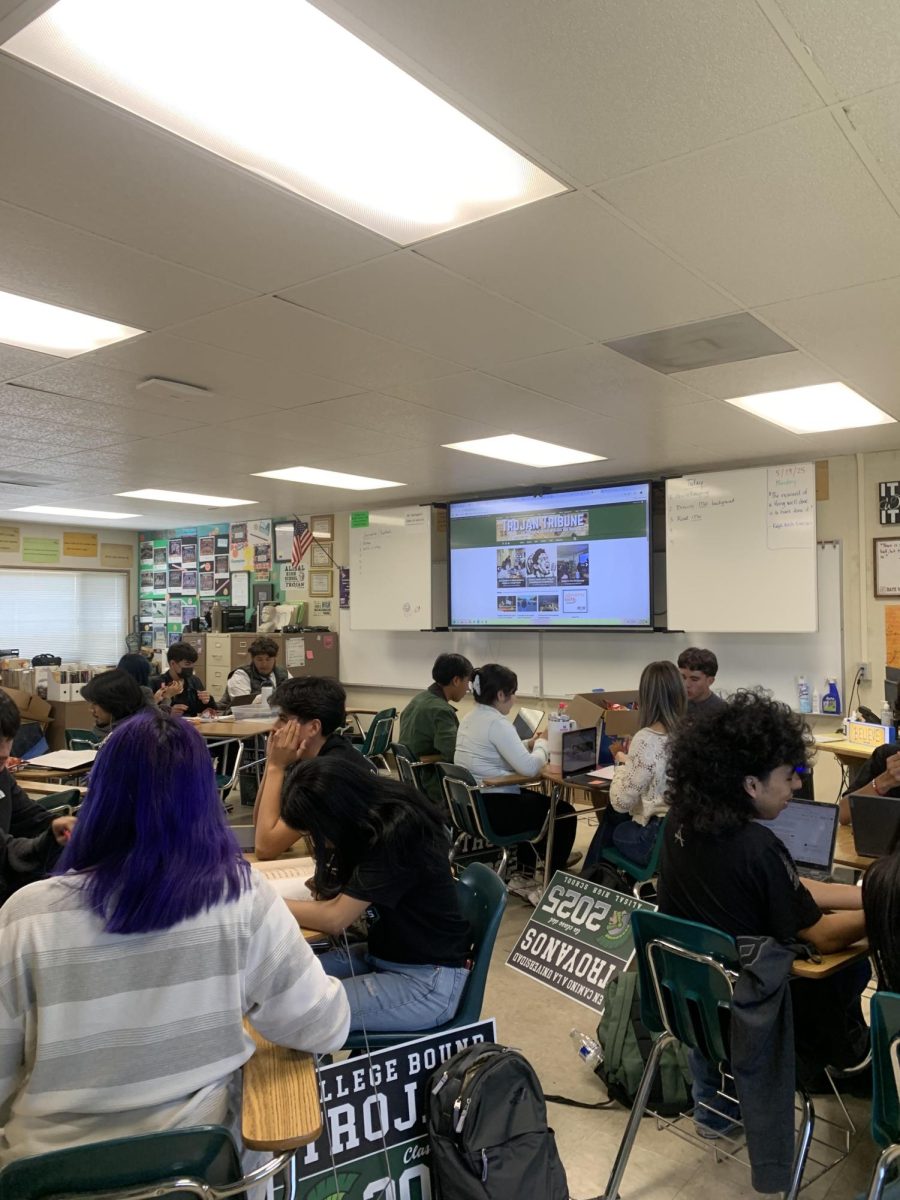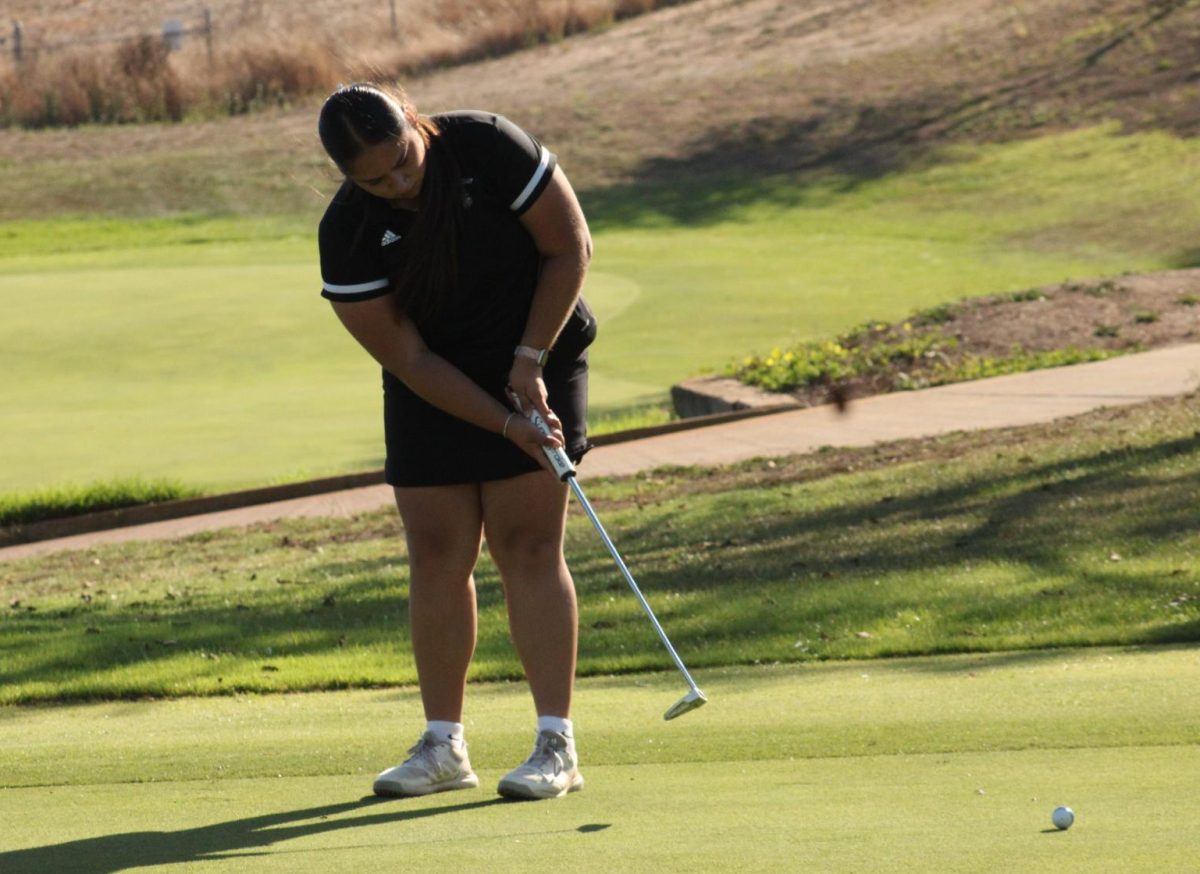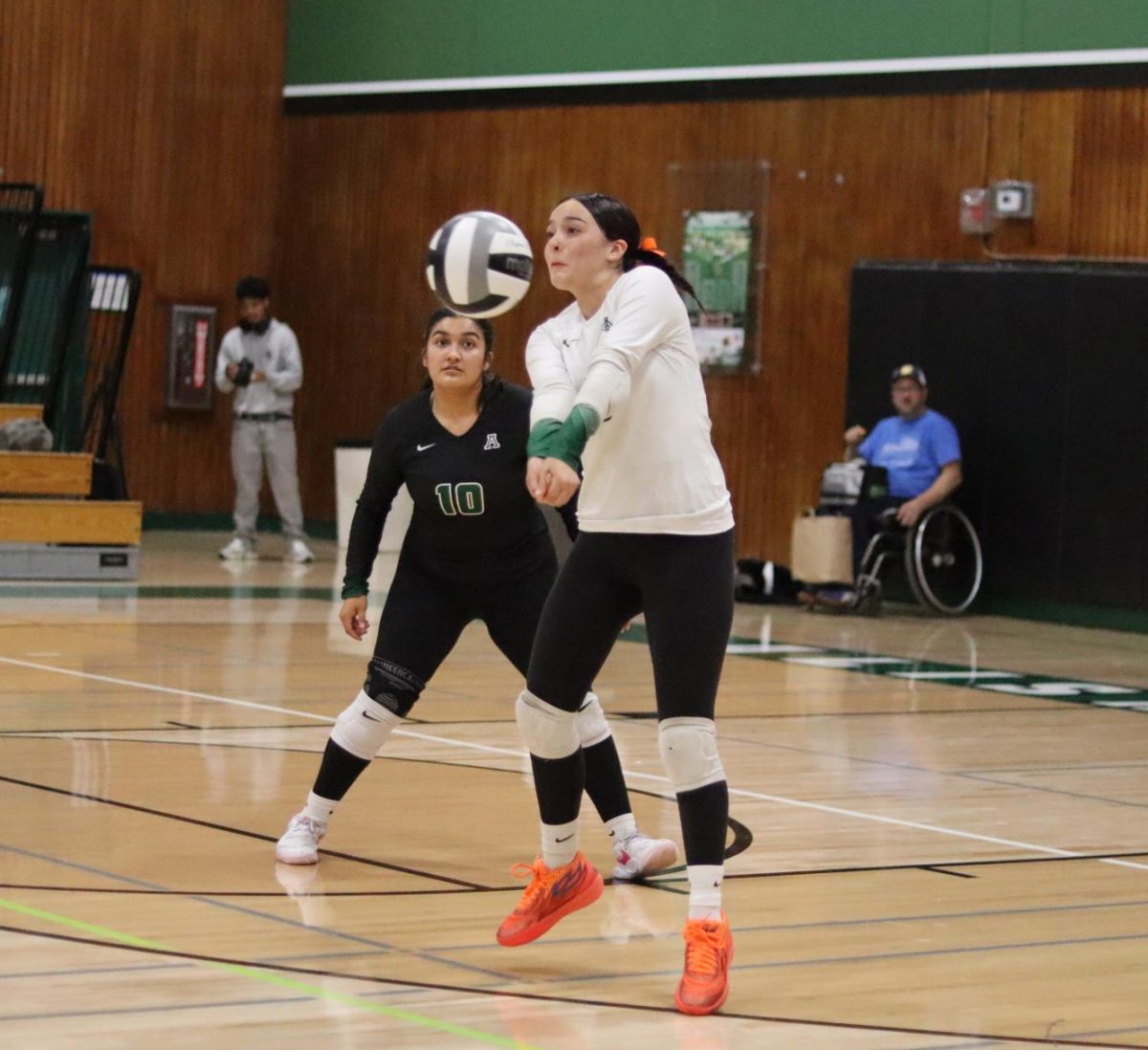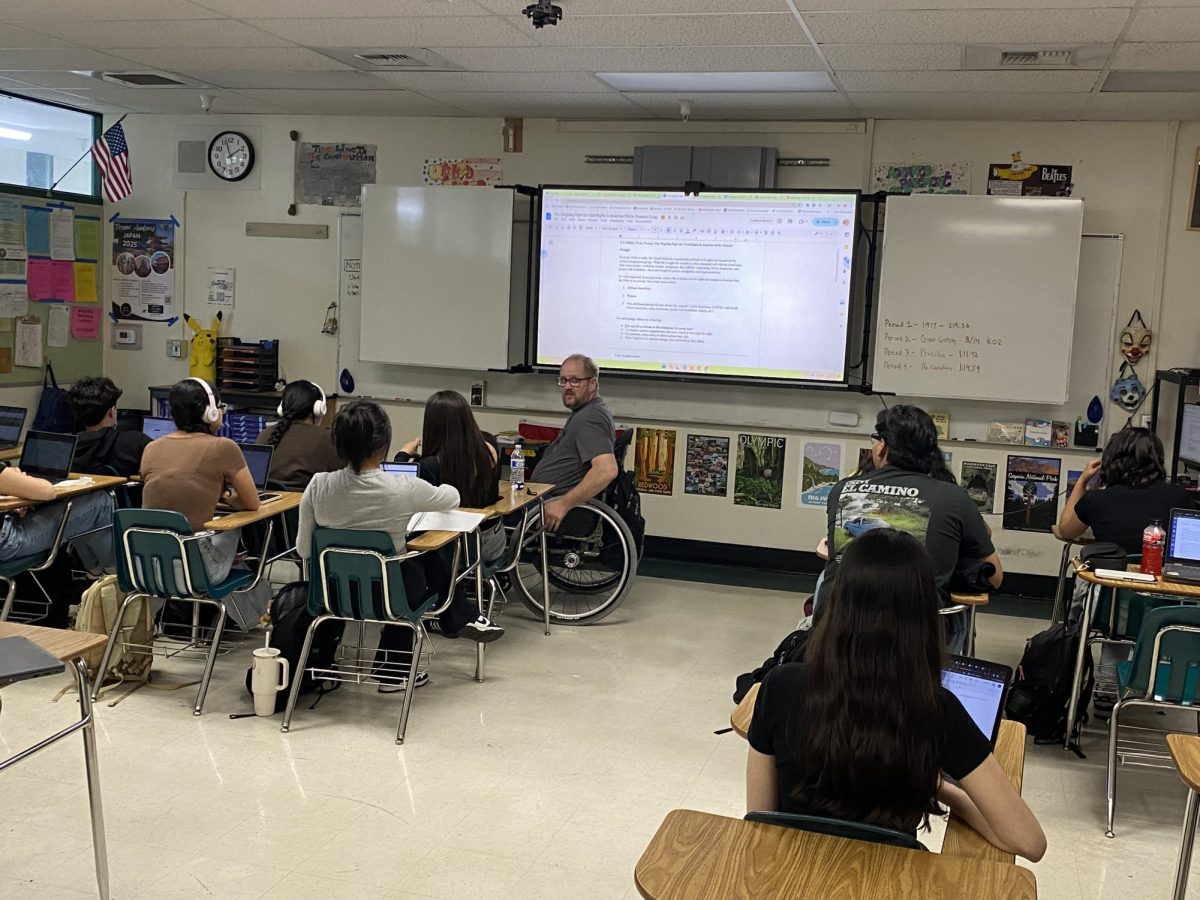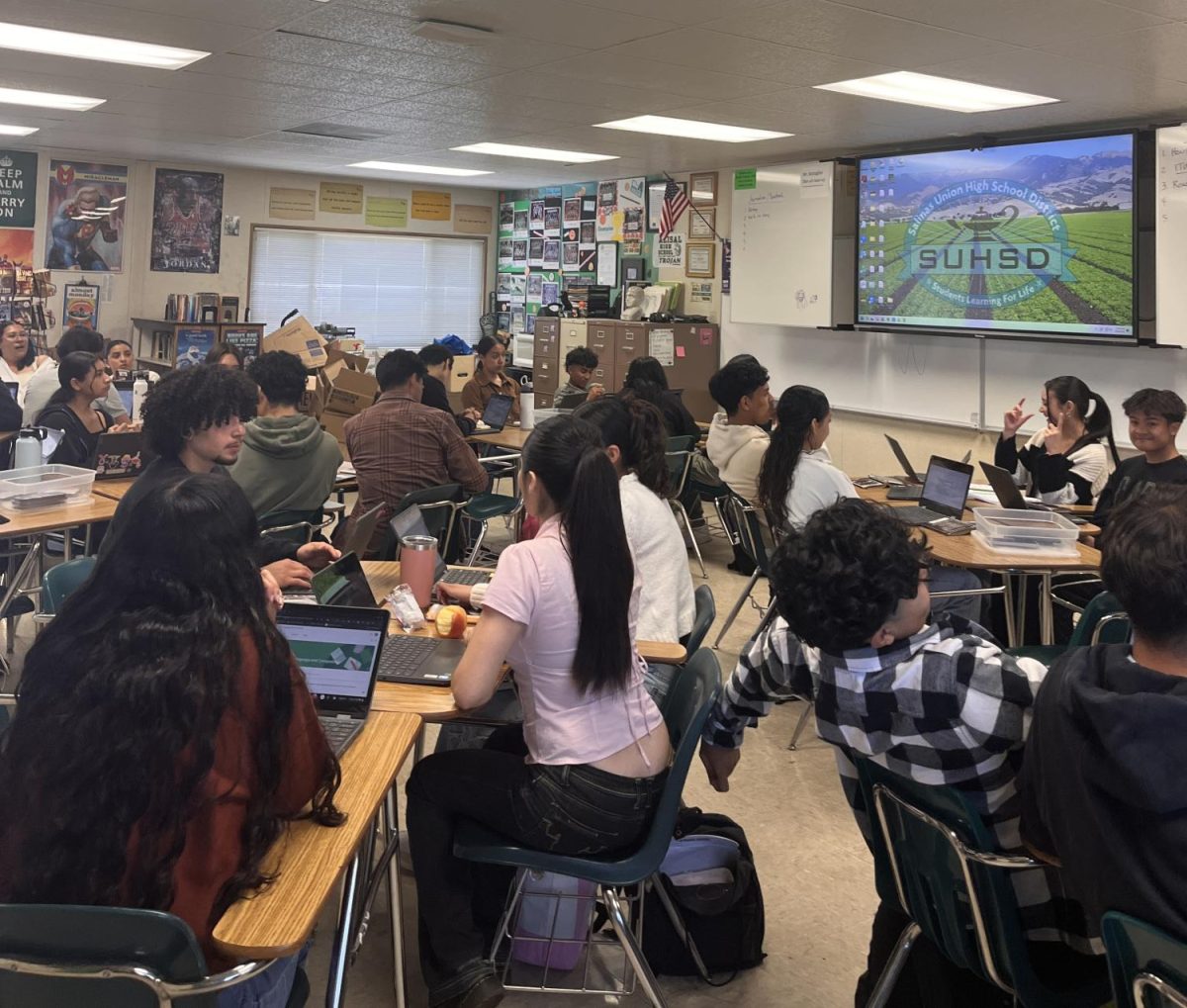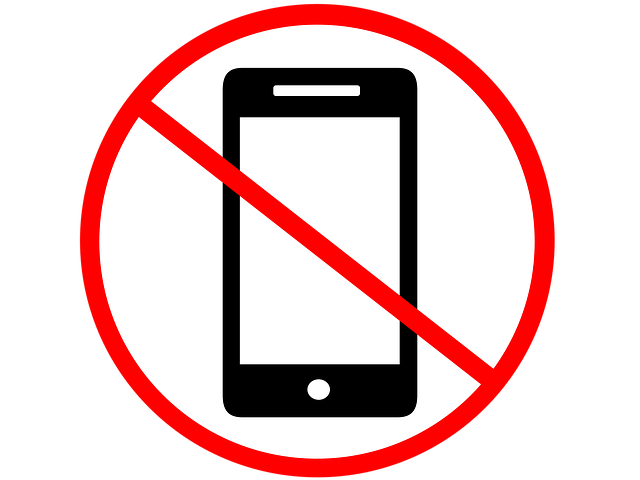Due to rapid technological advances, technology has become inevitable in our everyday lives. In schools, we have Chromebooks, teachers have multiple monitors, and now, newly added to every classroom on campus, touch screen smart boards. With all these technological advances, come the obvious advances with cell phones.
According to the student handbook, which every student received through mail, teachers are able to execute whichever actions they deem necessary in order to prevent cell phones from becoming a distraction. Teachers have done this through making their students place their cell phones in their pockets to making them place their cell phones in a paper bag and then stapling it shut.
Teachers oppose cell phones because they have become a huge distraction to the students. Because social media has endless scrolling and multiple notifications, students find themselves without any self-control and are often reaching out for their cellphones during class. This is especially disrespectful when the teacher is giving instruction and they, the teachers, are hoping every student is paying attention. So teachers have to spend a good amount of class time to make sure cell phones aren’t interfering with their student’s learning environment.
At Alisal, every teacher has found themselves adopting a method of making their students keep their cell phones out of sight. Some of these methods include placing it in their pockets and in a box. Many teachers find their reasoning behind enforcing these methods/policies the same. They all notice that cell phones are interfering with their students’ learning environment. Other teachers believe that it is to help them become more responsible. “They have to be held accountable,” English teacher Jared Hart said. “Policing cell phone use as though the students were elementary kids is not putting enough emphasis on personal student accountability.”
Other teachers go further off as to threaten much heavier consequences if they are caught on their cellphones. Math teacher Juan Trujillo has established a very clear policy. If a student gets caught on their phone, they will write 500 times “I will not use my phone in class”. That is for the first student who gets caught. If there are any other students who get caught on their cell phones after that, the number will increase to 1000 times. And the number will continue to increase until the students learn that cell phones are absolutely prohibited in his classroom. In the past, he has caught 7 students on their cellphones. Trujillo felt that this policy was necessary because phones seemed to be an inevitable problem. “Students were always on their cellphones”, Trujillo said. The first time he caught a student on their cell phone was about 12 years ago, the most recent was November Monday 13, 2023.
Like Trujillo, English teacher Mick Battaglini sees the amount of distraction cell phones bring to his classroom. He bought clear boxes and had students place them inside for the period. He has found that this policy is very successful. “Students were too distracted by their phones and it took too much time policing them,” he said. “Cell phones are made to be addictive, so by putting them in the box I’m removing the temptation, while allowing them to see it.”
Many students find it necessary to be forced to either keep their phones in their pockets or put them in another container, especially because they don’t have the self-control to leave their devices unattended for 55 minutes. “It’s unreal that we, as students, can’t control our phone use that we need it taken away for a class period,” senior Aliah Alvarado said.
Many students believe they should be able to have their phones in case of an emergency. In an informal student survey of 283 students, 30 students felt growing concerns over this possible scenario. Patti Lara, the receptionist, assures that there is always going to be a way for parents to be able to reach students. “They have Chromebooks, they can email,” Lara said. “We also have an analog phone line in case cell phone lines go down.”
Most teachers would argue that if it was a real emergency, the parents would contact the school and that they shouldn’t be contacting their child during class. However, both teachers and students know that the phones at school can go unanswered at times. “If there was a situation that a student needed to be contacted directly, then they should let the teacher know,” Battaglini said. “In that case, taking a call would be appropriate.”
The bottom line is that the student handbook makes the policy clear – no phones in class, so teachers have every right to enforce that policy, which includes confiscating a phone. Teachers deserve the respect and full attention from their students at all times. Cell phones should not be interfering with this respect and attention, or the education of themselves or others.

